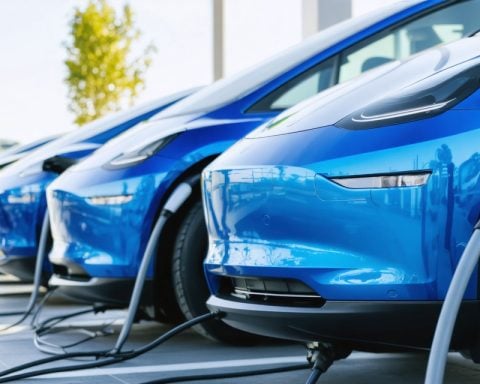Transforming Commutes: The Future of Sustainable Ridesharing
As cities worldwide grapple with rising emissions and traffic congestion, King County’s recent initiative stands as a beacon for the future of urban transportation. By integrating 120 Tesla Model Y vehicles into its popular vanpool service, the county is redefining how people commute.
Redefining Ridesharing with Cutting-Edge Technology
King County’s revolutionary step involves more than just replacing old vehicles with new, electric ones. It’s a commitment to an enhanced, eco-friendly commuter experience. The Tesla Model Y, chosen for its seating capacity of seven and electric efficiency, symbolizes a shift towards smarter travel solutions.
Economical and Environmentally Conscious Commuting
At a monthly rate of $49, King County’s Vanpool Program presents an affordable alternative for daily travelers. This initiative not only curtails travel expenses but also significantly contributes to reducing the region’s carbon footprint. The investment of $6.49 million is not merely a financial expenditure but a strategic move towards sustainable mobility.
Strategic Investments in Green Infrastructure
The county’s forward-thinking approach includes allocating $5.5 million from its 2025 budget for additional electric vans, reinforcing its dedication to sustainability. The eventual goal is clear: achieve a fully electric rideshare fleet by 2030. This transition is complemented by a forecasted 56% reduction in vanpool spending, highlighting a focus on efficiency and eco-friendly investments.
Looking Ahead: Market Potential and Community Benefits
As the demand for electric vehicles surges, King County Metro positions itself at the forefront of this movement. The anticipated growth of its services is expected to cater to a widening commuter base, leading to broader environmental benefits and setting a standard for other regions to follow.
By embracing these technologies now, King County is not just addressing current commute challenges—it’s paving the way for a sustainable, clean future for all urban environments.
Driving Change: The Environmental and Societal Impact of Sustainable Ridesharing
King County’s progressive initiative to incorporate 120 Tesla Model Y electric vehicles into its vanpool service is more than just an innovative transportation upgrade—it’s a transformative step with profound implications for the environment, humanity, the economy, and the future of urban living. This venture epitomizes a commitment to sustainable commuting and reflects broader trends that could reshape how societies worldwide address urban mobility.
Environmental Impact
The integration of electric vehicles (EVs) into public transportation systems symbolizes a critical stride towards reducing the carbon footprint of urban areas. Traditional combustion engine vehicles are significant contributors to greenhouse gas emissions, which exacerbate global warming and climate change. By transitioning to electric models, King County is actively participating in the fight against climate degradation, setting an example for reducing pollutants and improving air quality. This shift also reduces dependency on fossil fuels, aiding in the conservation of natural resources.
Humanity and Health
Beyond the ecological benefits, this initiative holds promise for improving public health. Studies have shown that reducing emissions from vehicles can lead to decreased respiratory and cardiovascular illnesses among urban populations, enhancing overall public well-being. Healthier citizens mean less burden on healthcare systems and better quality of life, creating a positive ripple effect across communities.
Economic Implications
From an economic perspective, King County’s approach showcases the potential for sustainable practices to reduce costs over time. The investment in EVs, while considerable upfront, is projected to pay off through decreased spending on fuel and maintenance, coupled with anticipated economic stimuli from new green technology jobs. The $49 monthly rate for commuters not only makes sustainable transport accessible but also potentially boosts disposable income, which can contribute to local economies.
Global Influence and the Future
King County’s model offers a visionary pathway for cities worldwide facing similar challenges. By acting as a trailblazer in the adoption of electric ridesharing, it sets a precedent for other urban centers, encouraging replication of its model to amplify global impacts. This strategy aligns with international goals for sustainable development and may inspire policy changes and innovations in urban planning and infrastructure on a global scale.
The future of humanity is intricately linked with our ability to develop, adopt, and proliferate such sustainable practices. As urban populations grow, the demand for efficient, environmentally responsible transit options will become increasingly critical. King County’s steps today could very well lay the foundation for cleaner, more efficient futures, suggesting that a widespread adoption of electric ridesharing can significantly contribute to achieving global sustainability targets—ushering a new era of urban living that prioritizes the health of both people and the planet.
Sustainable Ridesharing: The Future of Eco-Friendly Commutes
Unveiling the Potential of Electric Ridesharing
King County’s pioneering initiative to integrate electric vehicles into its vanpool service is more than just an innovative leap; it sets a precedent for urban transportation systems globally. By incorporating 120 Tesla Model Y vehicles, the county aims to revolutionize commuting into an eco-friendly venture while setting a benchmark for future ridesharing services.
Innovative Features of Tesla Model Y
The decision to use Tesla Model Y vehicles wasn’t made lightly. This model is renowned for its advanced features, including autopilot functions, extended range, high safety ratings, and a spacious, tech-friendly interior. These characteristics not only promise a superior commuter experience but also align seamlessly with the sustainability goals of King County Metro.
How-to: Making the Most of King County’s Vanpool Service
1. Sign Up Online: Register on the King County Metro website to join a vanpool.
2. Select Your Route: Choose from available routes or propose a new one to suit your needs.
3. Choose Your Pickup Point: Designate convenient locations for drop-off and pickup.
4. Access Real-Time Updates: Use the accompanying mobile app for schedule notifications and fleet location tracking.
Pros and Cons of Electric Vanpooling
Pros:
– Reduced Emissions: Significant decrease in greenhouse gas emissions.
– Cost-Effective: At $49 per month, it’s an economical choice for daily commuters.
– Community Benefits: Enhances air quality and reduces traffic congestion.
Cons:
– Limited Charging Infrastructure: The current infrastructure could challenge charging accessibility.
– Initial Cost: High initial investments are required for vehicle procurement and infrastructure development.
Exploring the Market and Future Trends
The move towards electrification not only fulfills immediate environmental objectives but also positions King County Metro as a leader in the burgeoning electric vehicle market. This trend is supported by the growing adoption of EVs and government incentives backing sustainable transport solutions. As more regions observe the success of this model, similar implementations are expected to proliferate across urban landscapes.
Sustainability and the Road to 2030
King County’s commitment to achieving a fully electric fleet by 2030 reflects an ambitious yet attainable goal, supported by a dedicated budget and strategic planning. Such endeavors underscore a transformative vision for urban environmental responsibility, ensuring that sustainability becomes integral to public transportation systems.
Predictions and Community Impact
Industry experts predict that by continuing to embrace electric ridesharing, regions like King County will not only mitigate environmental impact but also stimulate local economies through job creation and technological innovation. As electric vanpools become prevalent, they promise to reshape the urban transportation landscape, leading to healthier, more sustainable cities.
For more information on King County Metro and its sustainability initiatives, visit the King County website.













